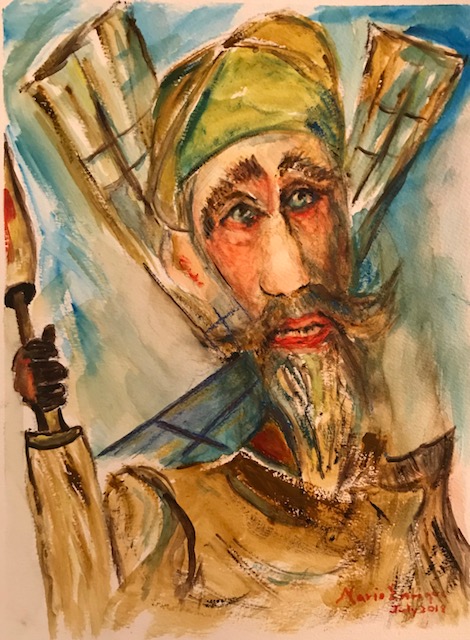
Tribal Constraints
Our cultures teach us what characteristics we should express or deny. Most of what we are given permission to own without cultural admonishments, are qualities that serve the preservation of tribal functioning: honesty, good parenting, hard work, loyalty, compassion, modesty, and anything else that does not violate within the pale parameters. Conversely, personal focus on individual qualities are discouraged from infancy throughout all the stages of our development: brilliance, beauty, creativity, strength, self-love, greatness, genius. But paradoxically, all of these qualities are encouraged as long as they are minimized or denied when complimented by others:
“I love your hair.” “Oh, I haven’t washed it in three days.”
“You’re very bright.” Not really, I just work hard.”
“You’re beautiful.” Well, if you could only see me in the mornings.”
How We Learn Denial of Excellence
We are taught to achieve, be productive, look our best, be competitive, stay healthy, which are good qualities, as long as they are not owned by expressing them to others or confirming them when complimented by others.
“Mommy look how beautiful I am.” “No darling, never say you’re beautiful. Wait for others to tell you, and then deny it.”
“I am really bright. I got the highest grade in class today.” “That sounds very conceited. You should always be modest when you do well.”
“I am much better in math than anyone else in my class.” “I am sure it would hurt your friends if you told them.”
The Hypocrisy of Pseudo Humility
From the beginning of our tribal journeys we are given profoundly paradoxical messages in the development of our self-worth: Promoting excellence to be denied when achieved. Although cultures range from collectivist (Eastern) to individualist (Western), to some degree, they all subscribe to admonishing public affirmations of personal excellence.
Beyond the Pale Consciousness
The word pale is an ancient term meaning fence or enclosure to protect those within. To venture beyond the pale was, not only dangerous, but no longer serving the tribe. This concern with leaving the tribe (norms, standards, beliefs, etc.) is so pervasive that the modern expression, going beyond the pale, connotes acting foolishly, excessively, or any other behavior that abuses cultural protocol.
Reclaiming Personal Excellence
After studying healthy centenarians (100 years or older) worldwide, I found these exceptional people are outliersfrom their cultures, whether collectivist or individualist. They are not boastful, but are quite comfortable expressing their personal qualities when asked or when it pleases them.
From my ethnographic notes on centenarians…
102-year old woman: Me — “You are a very beautiful person.” Centenarian woman: “Yes I am, thank you. I have always been beautiful.”
101-year old man: Me — “Tell me something you like about yourself.” Centenarian man: “Well, I am very bright and creative. People love my intelligence.”
103-year old man: Me — “What do you like about yourself.” Centenarian man: “I love everything about myself. I am blessed.” (followed by contagious laughter).
Lessons from Centenarians
Should you have to reach advanced longevity before you can own your excellence? I argue that personal wellness (mindbody) is enhanced by healthy affirmation and acceptance of your precious gifts. Yes, they are gifts, that if denied, you are expressing ungratefulness rather than humbleness, because most of your greatest attributes are endowed by nature, divinity, genes, or any other source you choose to believe. Thus, when complimented, a simple thank you, without diminishing thegift, will suffice.
What about letting others know your gifts? There are auspicious times when asserting, rather than boasting, your personal gifts is totally refreshing to self and others who lack envy. I am reminded of the Greek word for abundance, αφθονία (afthonía), literally meaning: lacking envy.
Need I say more?
